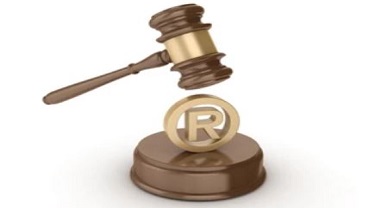Trademark Tussle: Blenders Pride vs. London Pride – A Legal Saga Unraveled
Introduction
The labyrinthine world of trademark disputes often unveils intricate legal debates and subtle nuances, where the discerning eye of the judiciary must navigate through layers of visual, phonetic, and structural intricacies. In this realm, the case of Pernod Ricard India Pvt. Ltd. v. Karanveer Singh Chhabra, emerges as a poignant saga, pitting the stalwarts of the liquor industry against each other in a quest for brand integrity and consumer trust. With the plaintiffs, masters of the venerable ‘Blenders Pride’ and ‘Imperial Blue’, standing firm against the defendants’ offering of ‘London Pride’, the legal arena becomes a crucible for discerning the veracity of claims and safeguarding the sanctity of intellectual property rights. Amidst the clash of titans, the courts undertake a meticulous inquiry into the alleged imitations, bearing witness to the jurisprudential acumen and the solemn duty to uphold the sanctity of trademarks. This blog delves into the judgement of the High Court of Madhya Pradesh Bench at Indore and discerns the legal questions answered by the court in the matter.
Parties to the case
Petitioner-Appellants:
- Pernod Ricard India Private Limited
A company incorporated under the Companies Act 1956
Having its registered office at 5th Floor, D-3 District Center Saket, New Delhi 110017 (Delhi)
- Pernod Ricard USA Llc
A company incorporated under the Laws Of United States of America
250 Park Avenue, 17th Floor New York
Respondent:
Karanveer Singh Chhabra trading As J.K. Enterprises
A proprietary concern at 155, Gurunanak Timber Market, Dhar Road, Indore (Madhya Pradesh)
Brief Facts
- Plaintiffs are in business of manufacturing and distribution of wines, liquors and spirits. They manufacture and sell whisky in the name of ‘Blenders Pride’ and ‘Imperial Blue’.
- The trademark Blenders Pride was adopted in 1973 by plaintiffs and was registered in favour of Seagram’s Company Limited, which is house mark of plaintiffs.
- The plaintiffs have obtained registration in respect of their trademark in Class-33.
- The plaintiffs have objected that defendant is imitating their trades marks.
- The defendants are selling ‘London Pride’, which according to plaintiffs is deceptively similar to its Blenders Pride trade mark and is sold by putting label, using packaging, getup and trade dress deceptively similar to Imperial Blue.
- The plaintiffs sought temporary injunction under Order 39 Rule 1 and 2 of CPC against defendant which was rejected by Commercial Court, Indore.
- The present appeal is filed by appellants under order 43 Rule 1(r) of CPC against order of Commercial Court, Indore.
Issues Raised
- Whether entire registered trademark should be compared with the offending trademark without splitting up and dissecting any of the trademarks to adjudge visual, phonetic and structural similarity?
- Whether prima facie defendant’s mark infringes the mark of plaintiffs?
- Whether the consumers of such products be able to differentiate between both brands?
- Whether trial court has committed any error in its decision?
Arguments of Parties
Plaintiffs- Appellants:
- Approach of trial court is erroneous as it did not compare both trademarks in its entirety.
- Comparison should have been done with viewpoint of a man of average intelligence with imperfect recollection.
- The concept of overall similarity has been completely ignored by the trial court.
Respondent
- It submitted it is the proprietor of London Pride and is a registered copyright owner of the artistic work London Pride and all other intellectual properties connected therewith.
- Overall comparison of trade marks of plaintiffs with that of defendant unmistakably shows that there is not similarity in them which may cause confusion in the mind of a consumer who shall go to purchase the same.
- The impugned order is in sound exercise of jurisdiction by trial court and no illegality can be pointed out in same.
Ratio of Judgement
- In an appeal against refusal of temporary injunction by the trial court, the appellate court will not interfere unless it is shown that the trial court has acted illegally or perversely.
- Protection of Trade Mark is available only for a complete trade mark and not any word therein unless the same is registered as a whole as well as in part as separate trade mark.
- The findings arrived at by the Trial Court are just and legal and call for no interference. As a result, the appeal was found to be devoid of any merits.
Analysis by Court
Observation of trail court:
- The only similar feature in two brands is the word ‘PRIDE’. The packaging, style, shape and logo are all different.
- Only on the basis of similarity of logo it cannot be said that defendant’s entire packaging style and trade dress is imitation of plaintiff’s design and both brands’ bottles are distinctively identifiable.

Observations of High Court:
Though it is contended that the trial Court has split up and dissected the trademarks of the contesting parties and has thereafter held that there is no similarity in the same, but from the impugned order it does not appear so.
The court compared both the products, i.e. bottles produced and observed that there does not appear any similarity in both of them. And that, even a man of average intelligence with imperfect recollection, would not be in any manner confused with the identity of both the bottles.
The court also observed that there is no similarity between ‘Imperial Blue’ and ‘London Pride’.
Examining the marks of plaintiffs with the mark of defendant as a whole, neither there is any visual nor phonetic nor structural similarity between any of the boxes or bottles of the plaintiffs with that of the boxes or bottles of the defendant. It is not a matter of mere dissimilarity but is a case of there being no actual similarity. It hence cannot be prima facie held that defendant’s mark infringes the mark of plaintiffs.
Pride is a noun and is of common usage which even otherwise cannot be registered being a generic word. It cannot be treated as distinctive or as being capable of distinguishing the product of plaintiffs from that of any other manufacturer of whisky.
The divisional bench also observed that Pride is publici juris common to trade and there are 48 variants of trade mark in class 32 and 33 with the word ‘Pride’ and many of them are registered with the Excise Authority as well for sale and purchase of liquor. Plaintiff’s stand of claiming exclusivity in respect of ‘PRIDE’ part of its ‘BLENDERS PRIDE’ mark, alleging infringement on the ground that defendant is using a mark including ‘PRIDE’ as a part thereof, hence cannot be accepted.
Placing emphasis of judgements of Supreme Court in Khoday Distilleries Limited vs. The Scotch Whisky Association 2008 (10) SCC 723 and of High Court of Bombay in Carew Phipson Ltd. V. Deejay Distilleries (P) Ltd. [AIR 1994 Bom 231] the court observed that it can be safely presumed with a sufficient deal of certainty that the consumers of both products would be mostly literate and having reasonable intelligence to distinguish between the bottles of Blenders Pride/ Imperial Blue and that of London Pride.
The court was of the considered opinion that the trial Court has not committed any error in holding that no similarity is found in the defendant’s mark which can be said to be such imitation of plaintiff’s trade mark which could deceive the consumers of plaintiff’s products.
Further Appeal:
An appeal was filed by the petitioner- appellant before the Apex Court on 5 January, 2024 against the order of High Court. The appeal is currently pending before the bench comprising Hon’ble Chief Justice, Hon’ble Justice J.B. Pardiwala and Hon’ble Justice Manoj Misra.
Conclusion:
In conclusion, the review of the judgment highlights the meticulous examination conducted by the trial court and the subsequent affirmation by the High Court, emphasizing the absence of substantial similarity between the trademarks in question. The courts have rightfully recognized the generic nature of the term “Pride” and its common usage in the trade of liquors, thus negating the plaintiff’s claim of exclusivity. Furthermore, the judgments cited provide a strong legal precedent for the protection of consumer intelligence and the distinction between competing brands. While an appeal has been filed before the Apex Court, it remains to be seen whether the appellate bench will uphold the findings of the lower courts or provide further clarity on the matter. This case underscores the importance of meticulous scrutiny in matters of trademark infringement and the need for a nuanced understanding of consumer perception in determining the likelihood of confusion.
Author: Vaishnavi Tripathi, in case of any queries please contact/write back to us via email to chhavi@khuranaandkhurana.com or at Khurana & Khurana, Advocates and IP Attorney.


